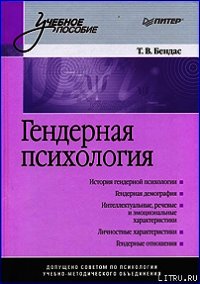В поисках энергии. Ресурсные войны, новые технологии и будущее энергетики - Мацак Олег (читаем книги .TXT) 📗
15. U. S. Energy Information Administration, “World Oil Transit Chokepoints,” EIA website.
16. Donna J. Nincic, “The ‘Radicalization’ of Maritime Piracy: Implications for Maritime Energy Security,” Journal of Energy Security, December 2010; Jane’s Navy International, September 28, 2010.
Глава 14. Зыбучие пески Персидского залива
1. R. W. Ferrier, The History of the British Petroleum Company, Vol. I, 1901–1932 (Cambridge: Cambridge University Press, 1982), p. 161 (Albania); Mira Wilkins, The Maturing of Multinational Enterprise: American Business Abroad from 1914 to 1970 (Cambridge: Harvard University Press, 1974), pp. 215–17 (“total loss”); Daniel Yergin, The Prize: The Epic Quest for Oil, Money, and Power (New York: Free Press, 1991), ch. 20 (“prize”) and chs. 24, 27, 29, Epilogue for the oil crisis.
2. Ali Al-Naimi, “Achieving Energy Stability in Uncertain Times,” speech, CERAWeek, February 10, 2010; Ali Al-Naimi, speech, Center for Strategic and International Studies, May 2, 2006.
3. Jane’s Intelligence Review, January 1, 2007 (legitimate target); Thomas Hegghammer, Jihad in Saudi Arabia (Cambridge: Cambridge University Press, 2010), p. 215 (safe house).
4. Jane’s Intelligence Review, May 1, 2006; Financial Times, August 27, 2007; Peter Bergen and Bruce Hoffman, Assessing the Terrorist Threat: A Report of the Center’s National Security Preparedness Group, Bipartisan Policy Center, September 10, 2009; The National Interest, May 13, 2009 (economic warfare); Ali Al-Naimi, speech, Center for Strategic and International Studies, May 2, 2006.
5. HIS Jane’s, “The Siege of Tigantourine,” January 23, 2013; The Guardian, January 25, 2013; Time, February 11, 2013 (“did not predict”); “Al Qaeda Cenrtal control tightened over hostage operations,” The Long War Journal, January 17, 2013, http://www.longwarjournal.org/archives/2013/01/analysis_al_qaeda_ce.php.
6. Washington Post, March 26, 2011.
7. United Nations Development Programme and Arab Fund for Economic and Social Development, Arab Human Development Report 2002 (New York: United Nations, 2002).
8. Navtej Dhillon and Tarik Yousef, eds., Generation in Waiting: The Unfulfilled Promise of Young People in the Middle East (Washington, DC: Brookings Institution, 2009).
9. Clay Shirky, “The Political Power of Social Media,” Foreign Affairs 90, no. 1 (2011), pp. 28–41.
10. Marcus Noland and Howard Pack, The Arab Economies in a Changing World (Washington, DC: Peterson Institute, 2007), pp. 99–111.
11. David Hobbs and Daniel Yergin, “Fiscal Fitness: How Taxes at Home Help Determine Competitiveness Abroad,” IHS CERA, August 2010; interview with Lucian Pugliaresi.
12. Bhushan Bahree, “Fields of Dreams: The Great Iraqi Oil Rush: Its Potential, Challenges, and Limits” IHS CERA, March 2010.
13. Middle East Economic Survey, October 11, 2010, October 18, 2010.
14. Michael Axworthy, A History of Iran: Empire of the Mind (New York: Basic Books, 2010), p. 271 (“stupidity”).
15. Kenneth Pollack, The Persian Puzzle: The Conflict Between Iran and America (New York: Random House, 2004), pp. 267, 286.
16. Karim Sadjadpour, Reading Khamenei: The World View of Iran’s Most Powerful Leader (Washington, DC: Carnegie Endowment for International Peace, 2009), pp. vi, 15; interview with Archie Dunham.
17. Interview.
18. The New York Times, March10, 1995 (Christopher).
19. Pollack, The Persian Puzzle, pp. 272, 282 (executive order); interview with Archie Dunham.
20. Axworthy, A History of Iran, p. 277 (“constitutional government”); Robin Wright, The Iran Primer: Power, Politics, and U. S. Policy (Washington, DC: US Institute of Peace Press, 2010), p. 140.
21. Madeleine Albright, Madame Secretary: A Memoir (New York: Miramax, 2003), pp. 319–26.
22. David Frum, The Right Man: An Inside Account of the Bush White House (New York: Random House, 2005), ch. 12 (“axis of evil”); James Dobbins, After the Taliban: Nation-Building in Afghanistan (Washington, DC: Potomac Books, 2008), pp. 121–22, 142–44 (“hunt down the Taliban”); Pollack, The Persian Puzzle, pp. 346–47 (military cooperation).
23. The New York Times, September 24, 2010 (“declining American economy”); Twenty Quotes (embraces Shia islam); Joshua Teitelbaum, “What Iranian Leaders Really Say About Doing Away With Israel,” Jerusalem Center for Public Affairs, 2008 (“wipe Israel off the map”); Axworthy, A History of Iran, pp. 290, 321 (“erased from the pages of time”).
24. Islamic Republic News Agency, December 5, 2006 (“good neighborliness”).
25. U. S. Energy Information Administration, “Strait of Hormuz,” World Oil Transit Chokepoints, February 2011 (Strait of Hormuz).
26. Rodney A. Mills, “Iran and the Strait of Hormuz: Saber Rattling or Global Energy Nightmare,” Naval War College, 2008, p. 1 (“unlimited period”); U. S. Energy Information Administration, “China,” Country Analysis Brief, November 2010; Anthony H. Cordesman, “Iran, Oil, and the Strait of Hormuz,” Center for Strategic and International Affairs, March 26, 2007; Caitlin Talmadge, “Closing Time: Assessing the Iranian Threat to the Strait of Hormuz,” International Security 33 no. 1 (2008) pp. 82–117; William D. O’Neil, “Correspondence: Cost and Difficulties of Blocking the Strait of Hormuz,” International Security 33, no. 3 (2008/2009), pp. 190–98.
27. Pollack, The Persian Puzzle, pp. 258–59.
28. Christian Science Monitor, September 24, 2008 (“end of times,” “heavens”); The New York Times, November 28, 2010.
29. Guardian, November 28, 2010 (“46 seconds”); The Wall Street Journal, January 4, 2010 (“Iranian Tactic”).
30. Eric Edelman, Andrew Krepinevich Jr., and Evan Braden Montgomery, “The Dangers of a Nuclear Iran: The Limits of Containment,” Foreign Affairs 90 no. 1 (2011), pp. 66–81.
31. 31. Implementation of the NPT Safeguards Agreement and relevant provisions of the Security Council resolution in the Islamic Republic of Iran, report dated November 18, 2011 by the Director General of the International Atomic Energy Agency; USA Today, April 17, 2012; Msnbc.com news services, April 20, 2012 (“glass of water”). Более глубокий анализ военных возможностей Ирана см. в Anthony Cordesman and Alexander Wilner, Iran and the Gulf Military Balance, parts I and II (CSIS: 2012) and Anthony Cordesman, “Iran the ‘Threat’ to Close the Gulf” (CSIS: 2012).
32. 32. Face the Nation, Transcript, January 8, 2012 (Dempsey); English.news.cn, January 19, 2012 (Premier Wen): Ali Naimi in Financial Times, March 28, 2012.
Глава 15. Газ по морю
1. Thomas D. Cabot, Beggar on Horseback: The Autobiography of Thomas D. Cabot (Boston: David R. Godine, 1979), pp. 46 (“opinion”), p. 75 (“dreamt”); Cabot II, p. 118 (“expropriated”).
2. Cabot II, p. 131 (extreme refrigeration); Malcolm Peebles, Evolution of the Gas Industry (New York: New York University Press, 1980) p. 187 (“intrigued”); Bureau of Mines study (investigation).
3. Hugh Barty-King, New Flame: How Gas Changed the Commercial, Domestic, and Industrial Life of Britain between 1813 and 1984 (Tavistock: Graphmitre, 1984), pp. 237–42 (“high speed gas”); Stephen Howarth, Joost Jonker, Keetie Sluyterman and Jan Luiten van Zanden, The History of Royal Dutch Shell: Powering the Hydrocarbon Revolution 1939–1973, vol. 2 (New York: Oxford University Press, 2007), p. x.
4. Fred von der Mehden and Steven W. Lewis, “Liquefied Natural Gas from Indonesia: The Arun Project,” in Natural Gas and Geopolitics: From 1970 to 2040, eds. David G. Victor, Amy M. Jaffe, and Mark H. Hayes (Cambridge University Press, 2006), p. 101 (Cook Inlet).




